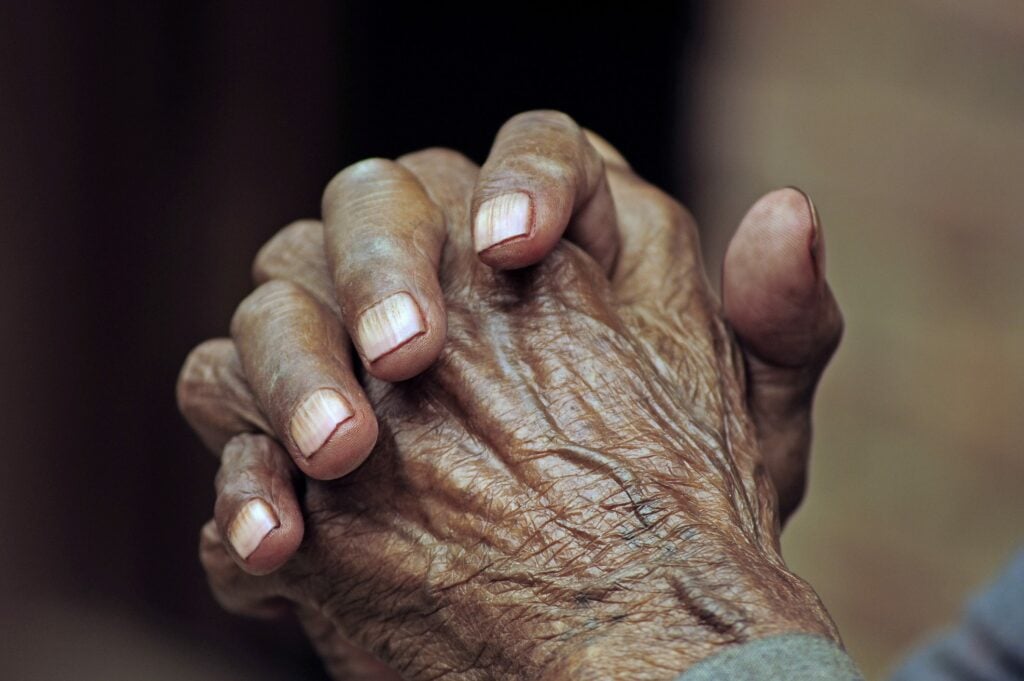Generation Alpha and mental health
Reviewed by Susan Radzilowski, MSW, LMSW, ACSW

Who are Generation Alpha?
Generation Alpha (also called “Gen Alpha”) is the generation born after Generation Z (Gen Z). They are the first generation born entirely in the 21st century.


Experts have not yet finalized Generation Alpha’s birthdates, but they will likely range from about 2010 to 2025. Another possible name for this group is Generation C (in reference to the COVID-19 pandemic).
Are generations real?
Generations are socially constructed categories, meaning their details (birthdate range, names, and formative events) are decided over time by experts and the public. Generations can be helpful ways of understanding others, but they have limits. Like all socially constructed categories, they’re most useful in the context of other shared social experiences, such as:
- Family of origin
- Age and stage of life
- Race and ethnicity
- Gender and sexuality
- Ability and disability
- Income and socioeconomic class
- Occupation and workplace
- Experience of pregnancy and/or parenthood
- Relationship status
- Religion or faith community
- Immigration experience and/or status
- Physical and mental health history
The lives of Generation Alpha
Generation Alpha is growing up in a world shaped by technology, social media, and global events like the pandemic, school shootings, and climate change. These young people have had their education and social lives disrupted by global pandemic lockdowns and remote learning. They’re also coming of age during a time of heightened awareness about mental health and emotional wellbeing.
Generation Alpha may face unique mental health challenges as a result of these experiences. They’re likely to be more comfortable with technology and virtual communication than previous generations.
Predictions for Generation Alpha
Since Generation Alpha is still in formation, we do not yet know their demographic information. But based on current research, it’s possible to make some reasonable predictions.
- They’re a more diverse group. In 2018, less than half of US kids under age 15 were both White and non-Hispanic.1 Generation Alpha is already more racially and ethnically diverse than previous generations. This generation will likely grow more diverse with time.
- They’re a smaller generation. According to US census data from 2019, Generation Alpha made up just over 8% of the population.2 Generation Alpha’s population is increasing, but saw a decline in births during the COVID-19 pandemic.3 Other “baby bust” generations include the Silent Generation and Gen X.
Generation Alpha and mental health issues
Generation Alpha is made up of children of Millennials and Generation Zers. These two groups have generally been more open about mental health than earlier generations. As a result, Generation Alpha is likely to have less stigma around mental health care than previous generations.
Loneliness and isolation
The pandemic shifted the social landscape for everyone, including kids. Many schools moved to some combination of virtual, socially distanced, or masked education. Get-togethers with friends came with restrictions, moved online, or simply stopped. Some kids didn’t see extended family, teachers, or friends for months.
Isolation can challenge kids’ mental health. We have yet to see how the isolation of the pandemic will shape Generation Alpha in the long term. Some may have symptoms of social anxiety as in-person gatherings increase.
Issues with technology
Generation Alpha will grow up with more digital technology than any previous generation. Streaming, voice activation, social media, and smartphones are now standard parts of life. This technology will probably affect how Generation Alpha accesses mental health care.
They may turn toward mental health apps for assistance instead of mental health professionals. If they do decide to see a therapist, they may prefer online therapy over traditional face-to-face sessions.
Generation Alpha is also moving away from the online platforms of their parents and toward more youth-oriented platforms. Facebook and Twitter are out while TikTok, YouTube, Instagram, Discord, and Twitch are now in.
Unsurprisingly, researchers have linked social media use to mental health risks.4 Generation Alpha may face the mental health consequences of screen time addiction, online bullying, comparison, perfectionism, gossip, outrage media, and doomscrolling.
Anxiety and depression
It’s still too early to tell, but Generation Alpha seems likely to experience higher levels of anxiety and depression. This would follow the trend of Millennials and Gen Zers.
During the first year of the COVID-19 pandemic, about one out of every four young people around the world felt depressed.5 One out of every five felt anxious. These numbers are twice as high as they were before the pandemic. Experts think that more young people will need mental health support in the coming years.
Children’s mental health
Distinguishing between stages of life and generations is important. Some mental health concerns relate to specific life stages (for example, struggling with mood swings during puberty). Others include shared generational experiences that happen during a specific life stage. Living through the COVID-19 pandemic during childhood is one example.
Generation Alpha children are experiencing similar mental health issues as previous generations did during their youth. A therapist can help children learn to manage these issues.
Childhood mental health risks
- Abuse and neglect. Children depend on their parents or guardians to love them, protect them, and prepare them for the world. This dependence unfortunately puts them at a large risk for abuse and neglect. The harmful effects of childhood neglect and abuse can be extreme and last well into adulthood.
- Instability at home, which can cause stress. Poverty-related stress can increase children’s risk for mental health disorders. The most significant impact occurs during the first five years of life.6 In the US, an estimated one in seven children live in poverty.7
- Bullying and peer pressure. Kids are still forming their sense of self and are strongly influenced by the opinions of others. Childhood bullying can cause serious harm to mental health.8
- Other forms of trauma. Even the most loving parents and guardians can’t protect their child from everything. Experiencing trauma can shape how a child understands the world and their place in it. Like grief, trauma can be hard for a child to process in healthy ways even with the guidance of a parent, guardian, or counselor.
Common childhood mental health disorders
- Attention-deficit/hyperactivity disorder (ADHD): In the US, just over 9% of kids have received an ADHD diagnosis.9
- Anxiety: Between 2016 and 2019, health care professionals diagnosed over 9% of kids aged three to 17 with anxiety.10
- Depression: In the same period, over 4% of kids aged three to 17 were diagnosed with depression.11
- Other disorders: One in six children between the ages of two and eight may be diagnosed with a mental, behavioral, or developmental disorder.12
Therapy for children
Many types of therapy can be effective for kids. Some common approaches include:
- Cognitive behavioral therapy (CBT) helps people identify and change unhelpful or negative thought patterns that affect their emotions and behaviors. It can be tailored to both adults and kids.
- Play therapy helps children process their emotions and experiences by using play as a form of communication. This type of treatment is best suited to kids ages three to 12, although it can be adapted for infants, adolescents, and even adults.
- Animal-assisted therapy uses animals alongside other treatment techniques to help kids in a number of settings including libraries, hospitals, and farms.
- Art therapy can be offered at schools, hospitals, and other institutions to help kids express themselves through creativity.
- Family therapy can include some or all members of a family, and it’s generally short-term. Some childhood mental health issues respond best to this kind of treatment. A therapist may suggest a specific type of family therapy or provide separate parent education sessions to help parents learn new ways to support their child.
If you or your child are struggling, browse our directory to find a licensed therapist near you.

Sources
1 https://www.brookings.edu/research/less-than-half-of-us-children-under-15-are-white-census-shows/
2 https://www.brookings.edu/blog/the-avenue/2020/07/30/now-more-than-half-of-americans-are-millennials-or-younger/
3 https://www.brookings.edu/blog/up-front/2021/05/05/the-coming-covid-19-baby-bust-is-here/
4 https://guilfordjournals.com/doi/10.1521/jscp.2018.37.10.751
5 https://pubmed.ncbi.nlm.nih.gov/34369987/
6 https://www.psychologicalscience.org/observer/how-poverty-affects-the-brain-and-behavior/
7 https://www.americanprogress.org/article/basic-facts-children-poverty/
8 https://www.stopbullying.gov/bullying/effects/
9 https://www.cdc.gov/ncbddd/adhd/data.html
10 https://www.cdc.gov/childrensmentalhealth/features/anxiety-depression-children.html
11 https://www.cdc.gov/childrensmentalhealth/features/anxiety-depression-children.html
12 https://www.cdc.gov/mmwr/volumes/67/wr/mm6750a1.htm
About the author
The editorial team at therapist.com works with the world’s leading clinical experts to bring you accessible, insightful information about mental health topics and trends.
Related articles

Baby Boomers and mental health
Born between 1946 and 1964, Baby Boomers have witnessed continued shifts in how...

The Silent Generation and mental health
Born between 1928 and 1945, the Silent Generation learned to prioritize...

Born in the mid-1960s to late 1980s, Gen X has historically taken a pragmatic...

Born in the 1980s through the mid-1990s, Millennials often struggle with...
